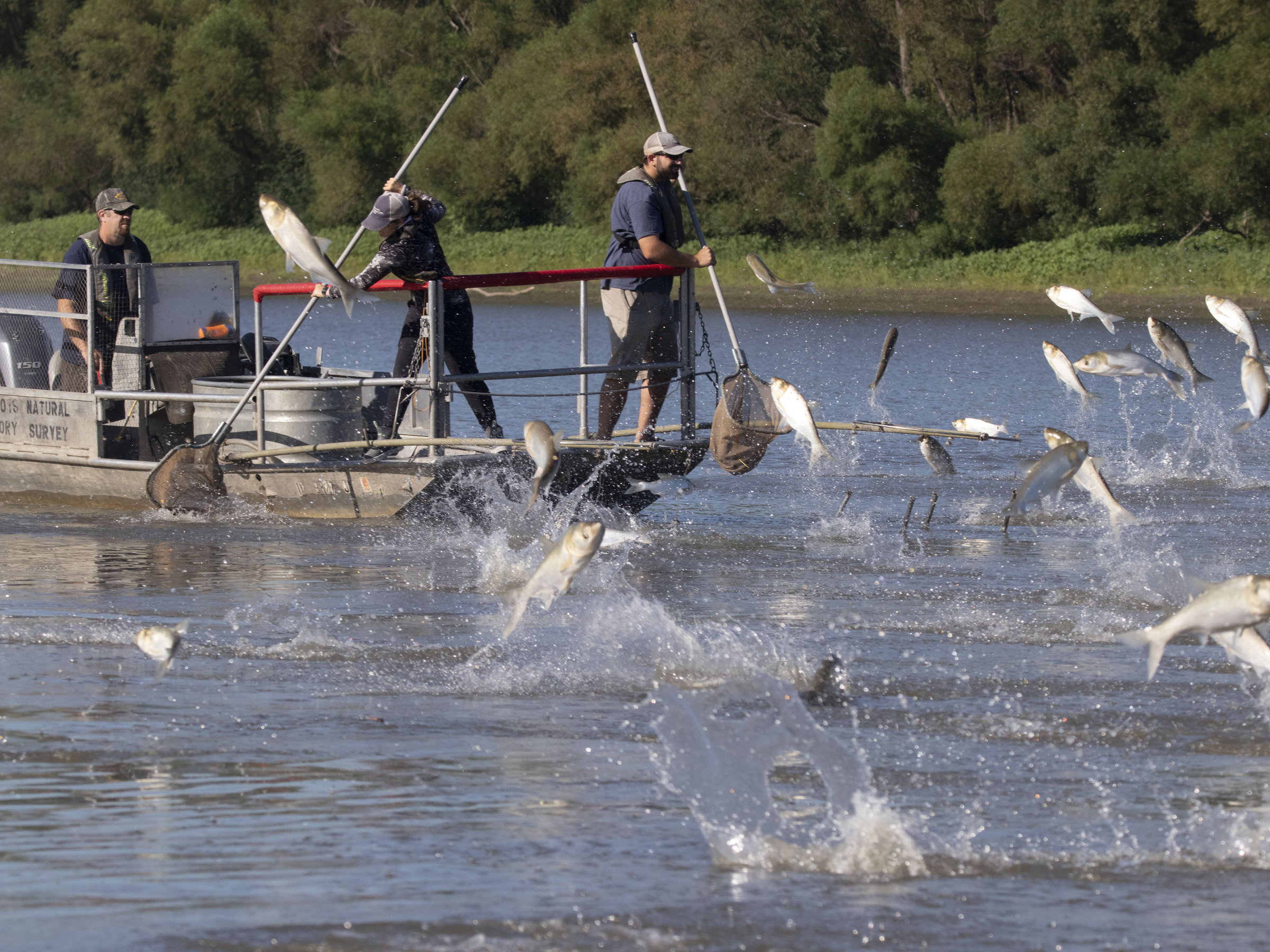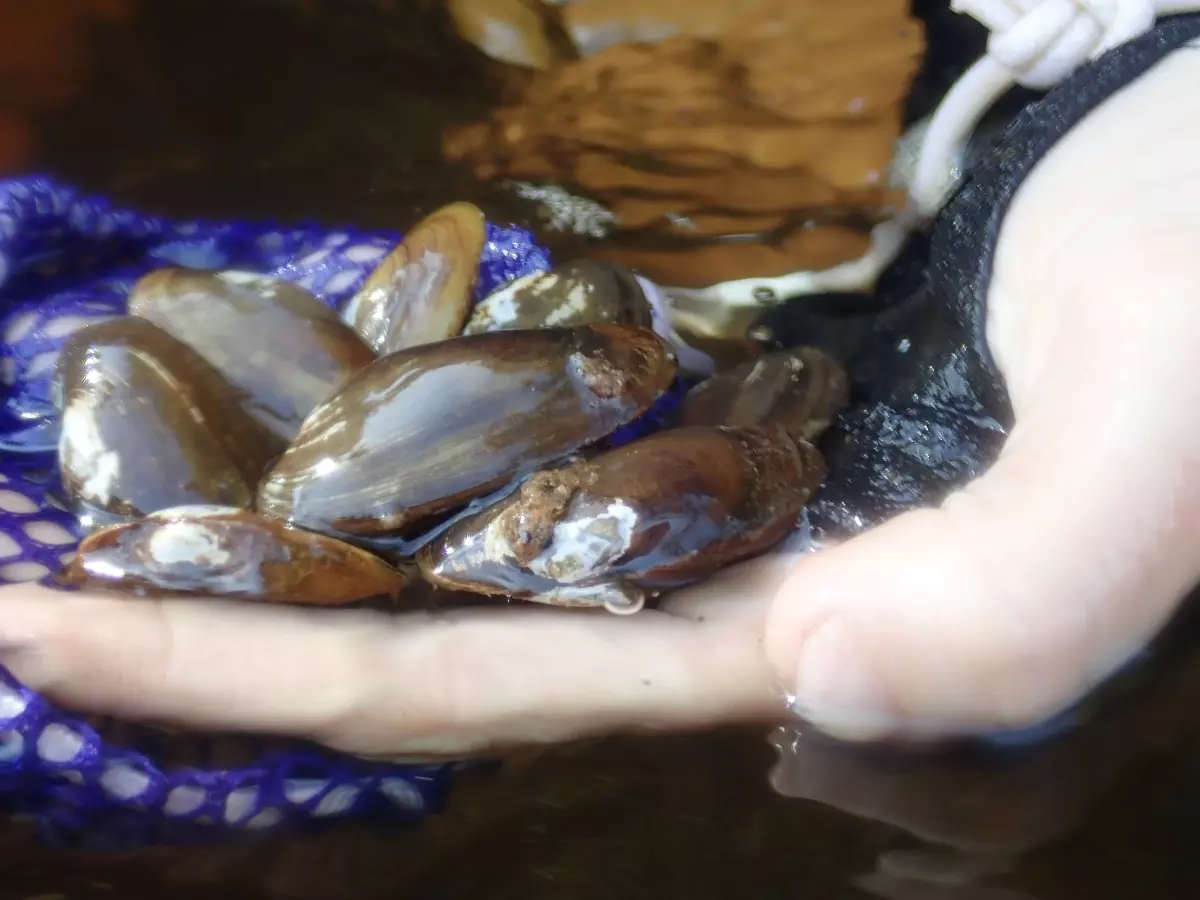Researchers at the University of Minnesota are hoping sound can keep Asian carp from traveling upstream on the Mississippi River.
University of Minnesota professor Peter Sorensen said invasive Asian carp seem to be more sensitive to sound than the native fish. This has led researchers to propose installing five speakers on the lock gates at Lock and Dam 8 in Genoa. The speakers would activate when a boat or barge passes through a lock, momentarily scaring the fish away and stopping them from passing through.
“We’ll be playing motorboat noises. You probably see them on TV – they jump when the boats go by. They don’t like those noises,” said Sorensen.
Stay informed on the latest news
Sign up for WPR’s email newsletter.
Sorensen said this would be a temporary experiment, and that if they find it’s hurting native fish, they’ll remove the speakers.
Asian carp have been found as far north as Winona. Although the invasive fish are not yet widespread on the Upper Mississippi River, Sorensen says they have to act now because once the carp get through, it will be incredibly difficult to eradicate them.
“Your grandkids may as well kiss that river goodbye,” said Sorensen. “Well, that’s a little strong. But they won’t have the same river, same fisheries, same enjoyment of it – it will be different and not for the better,” he said.
The project still needs approval from the Corps. As long as other state and federal agencies don’t oppose project, the Corps could reach an agreement by the end of the month.
Approval of the project was accelerated last year after Asian carp eggs were thought to be found in the Mississippi River near Wisconsin. Later, U.S. Geological Survey researchers concluded those were not Asian carp eggs.
Wisconsin Public Radio, © Copyright 2024, Board of Regents of the University of Wisconsin System and Wisconsin Educational Communications Board.





